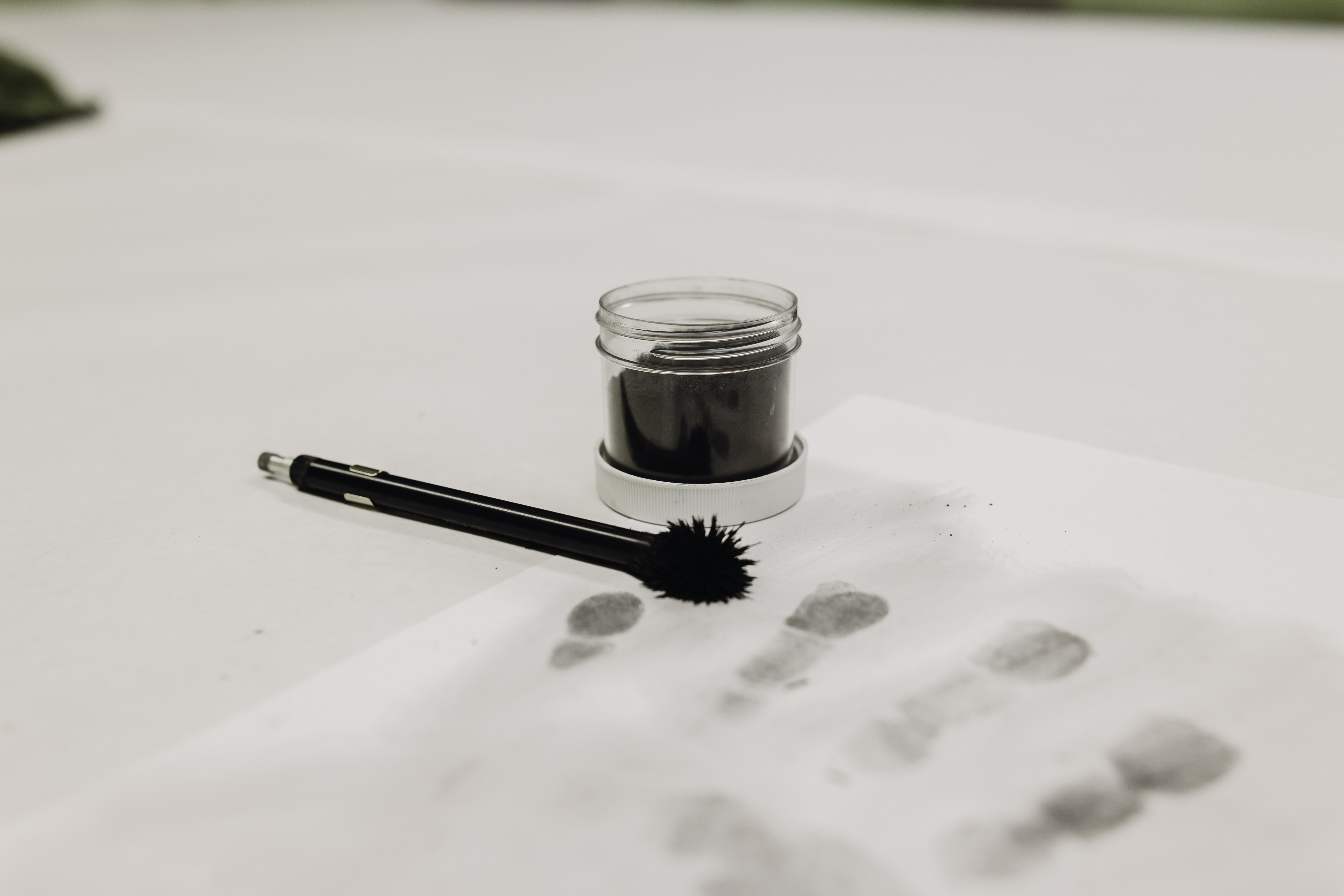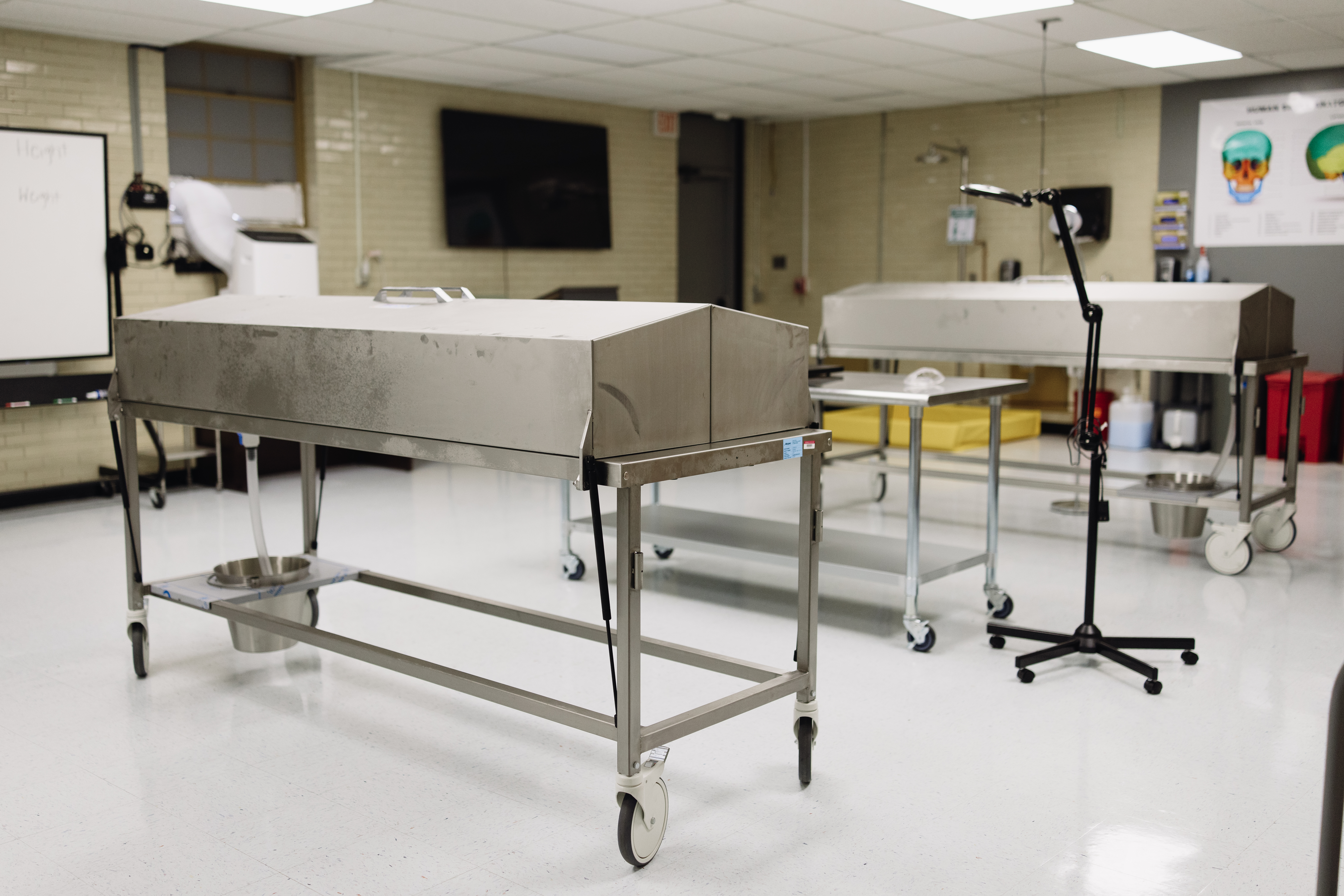Inside Ramona Wood: How Jax State’s Criminal Justice and Forensic Investigation Programs are Redefining Justice Education
11/06/2025
 By Brett Buckner
By Brett Buckner
Jacksonville State University’s Department of Criminal Justice and Forensic Investigation is experiencing unprecedented growth — tripling in size since 2017 and moving into a state-of-the-art new home in Ramona Wood Hall in 2024. The department had been located at Brewer Hall throughout its existence, but when the College of Education and Professional Studies moved in the Fall 2023 from Ramona Wood to the former site of Kitty Stone Elementary School – now known as the CEPS Complex – Criminal Justice and Forensic Investigation had a new home.
“The move to Ramona Wood Hall has been incredible,” said Dr. Dean Buttram, Department Head and Professor in the Department of Criminal Justice & Forensic Investigation. “We shared Brewer Hall with three other departments and did not have the space needed to reach our full potential.”
Since its move into the Ramona Wood building, growth has been steady. "But, with the creation of the new laboratories, new minors and degrees, that should all be in place within the next academic year," Dr. Buttram said, "the increase should be even greater within the next three to five years."
With the move to Ramona Hall, the department has added:
- A mock courtroom
- A mock jail cell and booking area
- Interview and interrogation rooms
- A seven-room crime scene house
- A blood spatter lab
- Digital forensics lab and classroom
- Fingerprint and trace evidence lab
- A cadaver lab
- The CJ Research Institute
- A student lounge/special event room
The move has been nothing short of a “game-changer” for the department, said Chris Haney, Instructor and Coordinator of the Undergraduate Forensic Investigation Degree Program. “Prior to the move, we had no room to provide labs for our students to be more hands-on,” he said. "Having the additional space of our own building has been an unbelievable blessing for our students. As part of the administration, along with Dr. Buttram, we are consistently planning and in discussions about the vision we have to always keep our department on the cutting edge of what is happening in the field of criminal justice and forensic investigation.”
The Department of Criminal Justice and Forensic Investigation is also offering a new, 18-hour Digital Forensic Investigation minor, which includes classes in cybercrime investigation, social media investigations and computer security.
“The digital forensics minor is actually a big deal,” Dr. Buttram said. “Basically, it’s all about technology and the evidentiary role it plays in criminal cases. This is the future of criminal investigation.”
These courses are led by assistant professor Dr. Sadik Arin. Having earned his Ph.D. from Michigan State University, Dr. Arin was also formerly the director of the Turkish National Forensic Science Department. “We are very fortunate to have [Dr. Arin} on our faculty,” Dr. Buttram said. “When it comes to digital forensics, he’s the man.”
 In the presence of the dead
In the presence of the dead
Of the new programs, it’s the cadaver lab that makes Jax State particularly unique.
The lab, which will be run by Joseph Scott Morgan, is the only one in the region that is specifically for forensic science as opposed to medical procedures.
“It sticks with the spirit of who we are at Jax State,” said Morgan, Distinguished Scholar of Applied Forensics. “We are not some ivy-covered-wall institution. Our focus, for years and years as an institution, has been to produce productive citizens. That includes everything from teaching to nursing to law enforcement to forensics.”
The cadaver lab has already proven to be an “incredible draw” for potential students, especially those considering a career in pathology. The classes filled up quickly and students are excited about the opportunity to be a part of this program.
“To me, it is imperative that we provide opportunities that allow these students to experience as many hands-on activities as possible,” he said. “My goal is to have their future employers be so impressed with their knowledge and the practical exercises that they are in the top tier of applicants for those jobs.”
The cadaver lab exposes students to something they likely won’t experience until they’re on the job. “Most police officers,” Morgan explained, “when they get their first job and go out to a death scene investigation, that’s often the first dead body most of them have ever seen.”
Because of this exposure, graduating Jax State students will already be ahead of some of their peers, making them better forensic scientists and law enforcement officers. “You cannot be an effective investigator until you break through that,” Morgan said. “That is my intention. If I can get these kids in and let them see what it's like to be around the dead ... Once you get that clarity, you begin to become an effective investigator.”
There are 25 students in the lab and only one body, which was sourced from North Carolina and belonged to someone who donated their body to science. Morgan lectures one day a week and separates the students into two groups with labs taught on different days. This makes it manageable for them to view the process.
To prepare his students, Morgan first gathers them in a semicircle around the body, taking one step closer at a time. “They have to be instructed on what to do because of that indwelling fear,” Morgan said. “I've got some kids that would've rushed right up to the edge, and I’ve got others who are … terrified. But I expect that. I've had some of the mightiest men in the world, men who are great detectives, walk in and stone-cold pass out.”
Striving to be the best
All of these additions allow the Department of Criminal Justice and Forensic Investigation to remain in alignment with the Northeast Alabama Law Enforcement Academy (NEALEA), the Center for Applied Forensics, the Center for Best Practices in Law Enforcement, the Alabama Investigator's Academy, and the Southeastern Leadership Command College, “making Jacksonville State University a law enforcement training destination for the region,” Dr. Buttram said.
Pending approval from the Southern Association of Colleges and Schools Commission on Colleges (SACSCOC), the department plans to offer a Master of Science in Forensic Investigation beginning in fall 2026. A minor in Paralegal Studies and one in Law Enforcement Drone Piloting will start in fall 2026, too.
 The department has also launched a new Law Enforcement Academy minor, providing a seamless path from classroom to career. Through this program, selected criminal justice students may attend the Northeast Alabama Law Enforcement Academy and earn their Alabama Peace Officers Standards and Training Commission (APOSTC) certification. Sponsored by the Jacksonville State University Police Department, these students will complete academy training, then serve with UPD under the direction of Chief Michael Barton until graduation. When they cross the stage, they will hold a four-year degree, APOSTC certification, and a full year of law enforcement experience — making them immediately employable by any police department in Alabama.
The department has also launched a new Law Enforcement Academy minor, providing a seamless path from classroom to career. Through this program, selected criminal justice students may attend the Northeast Alabama Law Enforcement Academy and earn their Alabama Peace Officers Standards and Training Commission (APOSTC) certification. Sponsored by the Jacksonville State University Police Department, these students will complete academy training, then serve with UPD under the direction of Chief Michael Barton until graduation. When they cross the stage, they will hold a four-year degree, APOSTC certification, and a full year of law enforcement experience — making them immediately employable by any police department in Alabama.
“Our department is producing more quality than ever,” Haney said. “If you are a student and interested in criminal justice or forensic investigation, there is no reason to go anywhere else. Jax State will prepare you, and your degree will put you at the top of the list when applying for those jobs. That is what every department on any campus should strive for, producing quality students who are well prepared to advance in their chosen field.”
With its new home, expanded programs, and the groundbreaking cadaver lab, Jacksonville State continues advancing its mission to prepare the next generation of forensic and law enforcement professionals.

